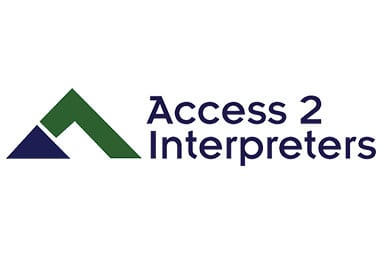
The Importance of Voice Inflection for an Interpreter
- Posted on
- access2interpreters
 The Importance of Voice Inflection in Interpreting
The Importance of Voice Inflection in Interpreting
When interpreting, the way we say something is just as important as what we say. Voice inflection, or the modulation of the voice, refers to changes in pitch or tone of voice. This is crucial in effectively communicating the intended message. The National Association of Judiciary Interpreters & Translators (NAJIT) recently wrote an article on “The Power of the Inflected Voice,” highlighting the importance of this aspect of interpreting.
A study by Body Language University found that 38% of our communications are conveyed through the tone, inflection, and speed of our voices. This means that voice inflection is an important aspect of interpreting. Access 2 Interpreters, a company that provides interpreting services, recognizes this and places a strong emphasis on voice inflection during their training and services.
he CEO of Access 2 Interpreters, Yana Schottenstein, emphasizes the importance of nonverbal elements in interpreting, particularly during face-to-face interactions. She says, “The non-verbal element along with the tone of voice is vital during the interpretation process yet overlooked. During our training process, we make sure to focus on the non-verbal element. This is especially important during face-to-face interpretation, which is a big part of our business.”
Janis Palma, from NAJIT, also stresses the importance of nonverbal elements in interpreting, such as inflected voice. She explains, “The human voice can convey emotions without actual words, and as interpreters, we cannot always reproduce those nonverbal elements, such as when someone sobs, or laughs. But we can change the pitch of our voice, such as pitch going from a higher note, to a softer one when someone cries while testifying, rather than using a shrill—and incongruent—pitch.”
Voice inflection plays a vital role in interpreting, not only in conveying emotions but also in effectively communicating the intended message. It is important for interpreters to pay attention to the nonverbal elements of interpreting, in order to provide accurate and effective interpretation services.
The old saying, “It’s not what you said, it’s how you said it” is particularly relevant to interpreting. The tone, inflection, and speed of the voice can greatly impact how the message is received. As such, it is important for interpreters to not only understand the words they are interpreting, but also to convey them in a way that effectively communicates the intended meaning. Access 2 Interpreters understands the importance of voice inflection and incorporates this into their interpreting services, ensuring that both verbal and nonverbal elements are accurately conveyed.

 The Importance of Voice Inflection in Interpreting
The Importance of Voice Inflection in Interpreting